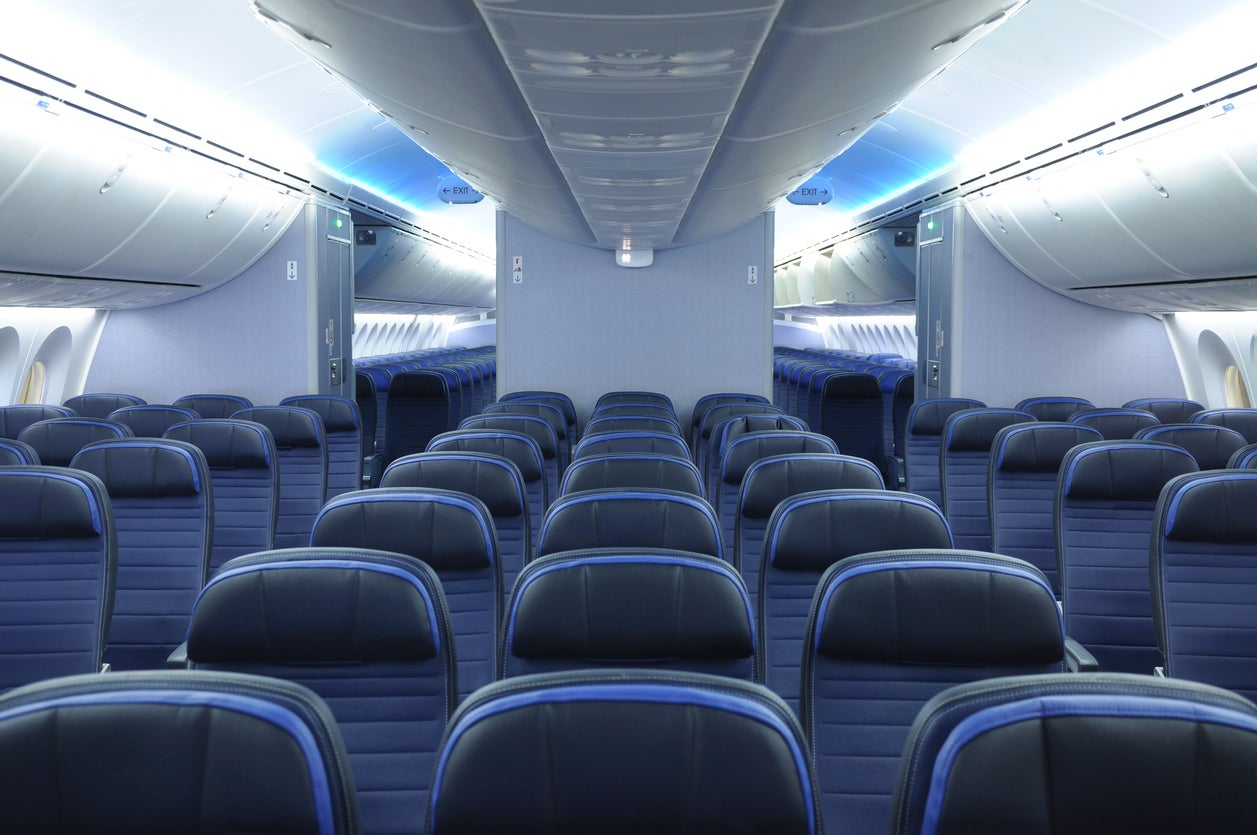Covid: Passenger infected four others on flight after testing negative, report says
Seven passengers tested positive for Covid after the flight

A passenger who had tested negative for coronavirus before a flight went on to infect four others during the journey, according to a new medical report.
A total of seven passengers sitting in relatively close proximity to one another ultimately tested positive for Covid-19 following the flight, states the report from New Zealand’s Institute of Environmental Science and Research.
The passengers had travelled from different parts of the world to converge on the flight departing from Dubai in the UAE on 29 September.
The destination for Emirates flight EK448 was Auckland in New Zealand, with a two-hour refuelling stop in Kuala Lumpur in Malaysia where none of the passengers got off or on the aircraft.
The total journey time was 18hr 02min, making it one of the longest flights currently operating.
The report identified the seven passengers as A, B, C, D, E, F and G. Of these, A, B, C, D, and F had all had a PCR test for Covid-19 in their home countries within 72 hours of their journey and had all tested negative.
And while “during the flight mask use was not mandatory… cases A, B, D, F and G self-reported mask and glove use on the plane while cases C and E did not”.
New Zealand is currently operating a mandatory 14-day quarantine for all international arrivals, so all of the 86 passengers on board the flight were taken to quarantine centres, known as managed isolation and quarantine (MIQ), where they were tested for coronavirus on the third and 12th day of their stay.
Passengers A, B and C all tested positive for Covid during the first screening in New Zealand on 2 October – all other passengers tested negative at this stage.
But in the days that followed, several more passengers tested positive for Covid ahead of the second screening, either because they were showing symptoms or because they’d been identified as being in close proximity to other passengers with Covid.
Based on the timeline of who exhibited symptoms when, the seating plan and genome sequencing of the virus, researchers posited that passengers A and/or B were likely to have carried the virus on board.
The report said: “Within this group of seven, two cases (A and B) were likely the index cases infected before the flight, four cases (C, D, E, and F) were likely infected in flight, and the remaining one case (G) was likely infected in MIQ. All seven cases were seated within two rows of the presumed index case(s) and were in aisle seats.”
However, the report adds that it does not “definitively exclude an alternative exposure event such as transmission occurring at Dubai airport before boarding, for example during check-in or in boarding queues”.
Researchers also questioned the effectiveness of the pre-departure testing, recommending instead that all international arrivals into New Zealand be treated “as potentially infected with SARS-CoV-2 even if pre-departure tests have been undertaken, social distancing and spacing have been followed and personal protective equipment has been used in flight.”
A Harvard report from last month suggested that flying is safer than “grocery shopping” when it comes to catching Covid-19.
The report found that airlines have used a “layered approach” to reduce the risks of transmitting coronavirus on board flights since spring 2020.
The five layers include the “highly effective ventilation systems” installed on aircraft, known as High Efficiency Particulate Air (HEPA) filters; wearing of face masks; new disinfection procedures, especially for high-touch surfaces; health screening, including where passengers have to declare they’re not experiencing any symptoms; and better education and awareness around how to mitigate risks and identify symptoms.
Since the introduction of these new procedures, “there has been little evidence to date of onboard disease transmission”.
However, it has also been suggested that the experiences on an ultra-long haul flight may be very different, as passengers may struggle to keep their masks on for the full 18-hour flight time.
Join our commenting forum
Join thought-provoking conversations, follow other Independent readers and see their replies
Comments


Bookmark popover
Removed from bookmarks